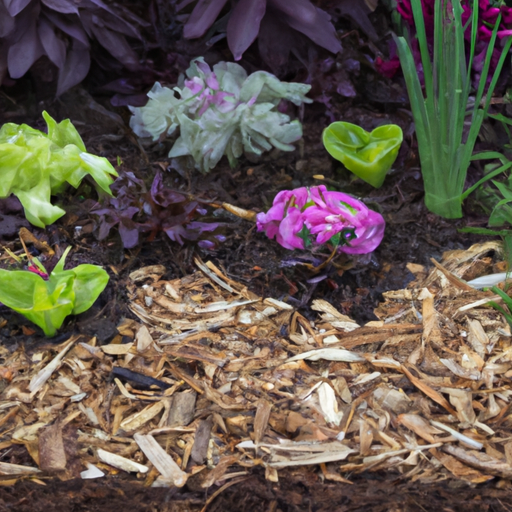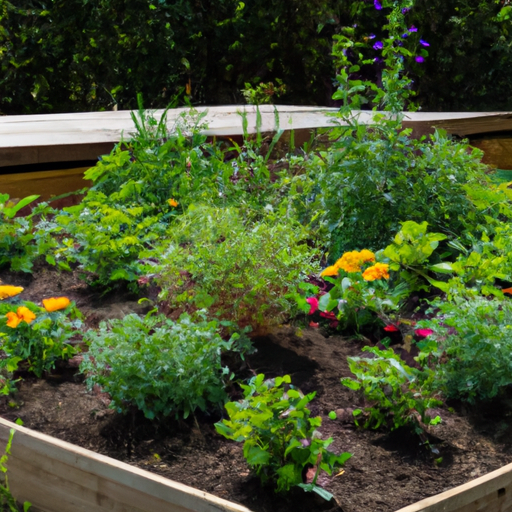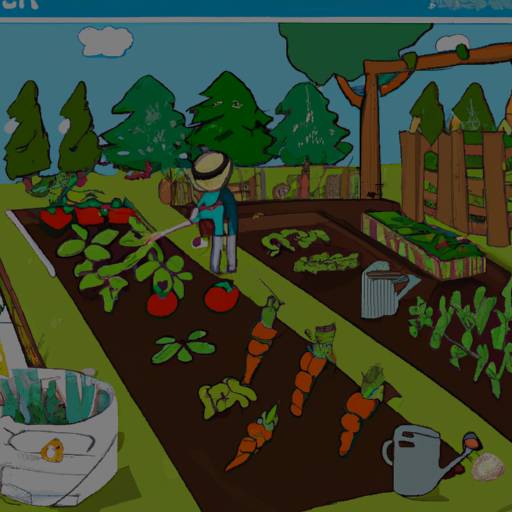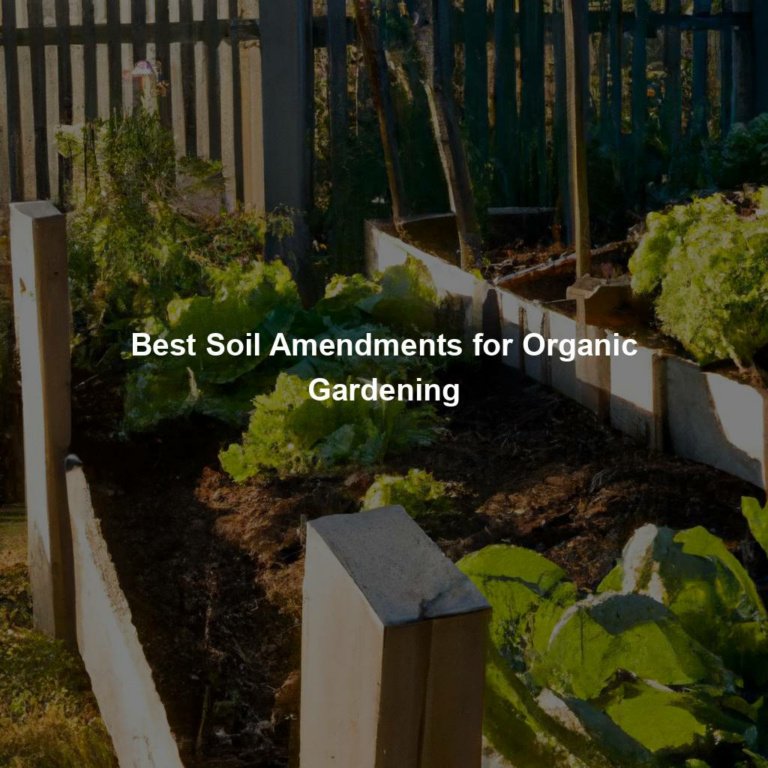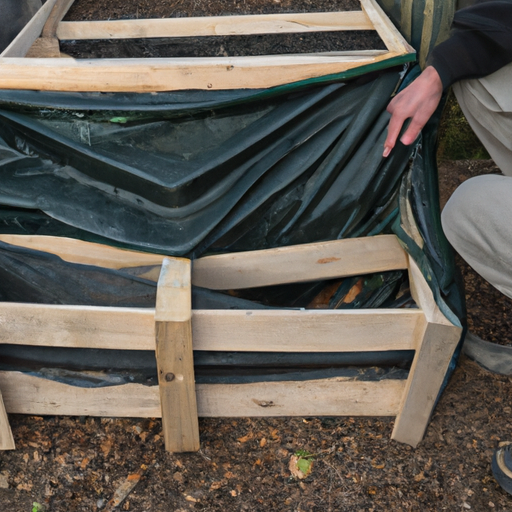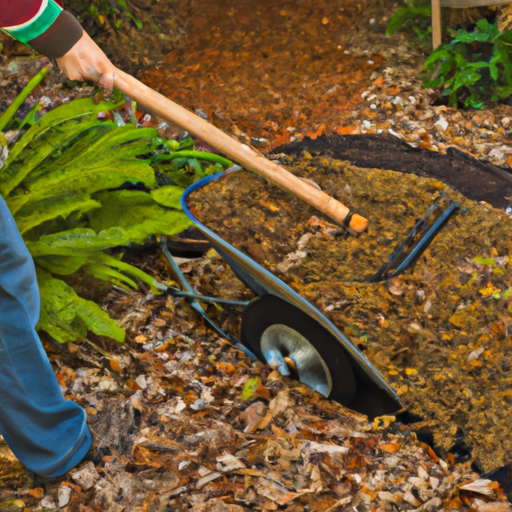If you’re an avid gardener, then you know that mulching is a vital practice for healthy plant growth. However, have you considered using organic mulch in your garden?
There are numerous benefits to incorporating this type of material into your gardening routine, including improved soil health and increased water retention. Organic mulch offers a natural way to retain moisture in the soil while suppressing weed growth.
This type of mulch breaks down over time and adds nutrients back into the soil, improving its overall quality. Additionally, because it’s made from naturally occurring materials such as leaves, straw, or wood chips, organic mulch doesn’t contain any harmful chemicals that could harm plants or animals.
In this article, we’ll dive deeper into the many benefits of using organic mulch in your garden and explore some different types of materials you can use to get started. So grab your gloves and shovel – it’s time to start digging!
Improved Soil Health
Healthy soil is the foundation of a successful garden, and using organic mulch can greatly improve its health.
Composting benefits are numerous when it comes to improving soil quality; by breaking down yard waste and kitchen scraps into nutrient-rich compost, you’re creating an excellent fertilizer that can help your plants thrive.
Organic mulches such as wood chips, straw, or leaves have many advantages over inorganic options like plastic sheeting or rocks.
They provide food for beneficial microorganisms in the soil while also increasing water retention and reducing erosion.
As a Master Gardener, I highly recommend incorporating organic mulch into your gardening routine to boost soil health and promote healthy plant growth.
So next time you’re considering how best to care for your garden beds, remember that choosing organic mulch will not only benefit your plants but also contribute to the overall health of your beloved green space!
Increased Water Retention
Another benefit of using organic mulch in your garden is increased water retention.
Mulching helps to slow down the evaporation process, keeping your soil moist for longer periods.
This means you won’t have to water your plants as frequently, saving you time and money on your water bill.
Different mulch types can also affect how much moisture is retained in the soil.
For example, wood chips or straw are more effective at retaining moisture than rocks or gravel.
In addition to choosing the right type of mulch, gardening techniques such as proper spacing and watering practices can further enhance water retention in your garden beds.
By incorporating organic mulch into your gardening routine, you’ll be doing yourself a favor by reducing the amount of watering needed while promoting healthy plant growth without having to resort to chemical fertilizers.
Natural Weed Suppression
Picture walking through your garden without a weed in sight. It’s not just a dream, it can be reality with natural weed suppression techniques using organic mulch.
Not only does organic mulch provide numerous benefits to the health of your soil and plants, but it also serves as an effective method for controlling weeds. Benefits such as retaining moisture, improving soil structure, and increasing nutrient availability are all reasons why organic mulch should become a staple in any gardener’s toolbox.
But how exactly does it suppress those pesky weeds? By creating a barrier between the soil and sunlight, organic mulch prevents weed seeds from germinating while also reducing competition for water and nutrients among existing weeds.
Methods for implementing this technique include spreading a layer of shredded leaves or grass clippings around plants or using wood chips on paths and walkways.
With natural weed suppression through the use of organic mulch, you’ll spend less time pulling weeds and more time enjoying the beauty of your garden.
Nutrient-Rich Soil
Organic mulch not only helps maintain moisture levels in your soil, but it also contributes to nutrient-rich soil that is essential for the growth of healthy plants.
By using organic materials such as leaves or grass clippings as a mulch, these materials will eventually break down and decompose into the soil, providing nutrients like nitrogen, phosphorus, and potassium.
This natural process promotes sustainable gardening practices by reducing the need for synthetic fertilizers that can harm beneficial microorganisms in the soil.
Composting benefits are also achieved through incorporating organic matter into your garden beds, which improves soil structure and increases microbial activity.
With nutrient-rich soil from organic mulch, you’ll be able to cultivate thriving vegetable gardens or beautiful flower beds without compromising on sustainability.
Different Types Of Organic Mulch To Consider
As a Master Gardener, I always advise using organic mulch to keep your garden healthy and thriving.
When it comes to choosing the right type of organic mulch for your garden, there are a variety of options available.
One option is to use composting materials from your own yard or kitchen, such as grass clippings, leaves, fruit peels, and vegetable scraps.
Composting options not only provide an excellent source of nutrients but also reduce waste in landfills.
Another sustainable sourcing method is purchasing organic mulch made from renewable resources like straw or wood chips that come from responsibly managed forests.
These types of mulches can help prevent soil erosion while adding valuable organic matter back into the soil.
By considering these different types of organic mulches when planning your garden’s maintenance routine, you’ll be sure to create a healthier, more vibrant growing environment without harming the earth.
Frequently Asked Questions
Can Organic Mulch Attract Pests Or Insects To My Garden?
One concern that gardeners often have when using organic mulch is whether it can attract pests or insects to their gardens. However, with proper techniques and preventive measures, this risk can be minimized.
Preventing infestation starts by choosing the right type of mulch – one that has been properly composted and free from any disease or seed contamination.
In addition, natural insect control methods such as introducing beneficial insects like ladybugs and lacewings into your garden can help keep unwanted pests at bay.
By taking these steps, you can enjoy the benefits of organic mulch without worrying about insect problems in your garden.
How Often Should I Replace The Organic Mulch In My Garden?
As a Master Gardener, mulch maintenance is an essential aspect of preserving the lifespan of your garden. Knowing when to replace organic mulch can be tricky, but it depends on several factors such as weather conditions, soil quality, and type of plantings.
A good rule of thumb is to inspect your mulch every six months and replenish any areas that have thinned out or decomposed.
However, if you’re looking for ways to prolong the life of your mulch without having to replace it often, consider exploring alternatives like grass clippings or shredded leaves.
These options not only save you money in the long run but also provide additional nutrients to your plants.
Remember: proper mulching practices are crucial for maintaining healthy gardens!
Does Organic Mulch Have Any Negative Impacts On The Environment Or Wildlife?
As a Master Gardener, it’s important to consider the potential negative impacts of organic mulch on the environment and wildlife.
While composting benefits can be seen through its ability to improve soil quality and retention effects, improper use or disposal of organic materials can harm surrounding ecosystems.
For example, excess nitrogen from decomposing mulch can cause algae blooms in nearby bodies of water, leading to decreased oxygen levels for aquatic life.
Additionally, certain types of wood chips used as mulch can attract pests that may disrupt local wildlife populations.
It’s crucial to properly research and implement sustainable practices when using organic mulch in your garden to ensure minimal negative impact on our planet.
Can I Use Any Type Of Organic Material As Mulch In My Garden?
When it comes to using organic mulch in your garden, it’s important to choose the right materials.
Not all organic matter is suitable for mulching – some can even harm your plants!
Stick with tried-and-true options like grass clippings, straw, and leaves that have been shredded or composted.
These materials provide numerous benefits of using organic mulch such as suppressing weeds, conserving moisture, and improving soil health by adding nutrients over time.
By choosing the best organic materials for mulching, you’ll help ensure a healthy and thriving garden environment.
Is Organic Mulch Safe For Edible Plants And Vegetables?
Organic mulch is a fantastic option for any gardener looking to create sustainable and healthy garden practices. When it comes to edible plants and vegetables, using organic mulch can be both safe and beneficial.
Choosing the right type of organic material ensures that harmful chemicals are not present in your soil or on your produce.
Benefits of organic mulch for fruit trees include moisture retention, weed suppression, and increased nutrient availability.
As a Master Gardener, I highly recommend incorporating organic mulch into your gardening routine as part of an overall commitment to sustainability and healthful growing practices.
Conclusion
In conclusion, as a Master Gardener, I highly recommend using organic mulch in your garden. Not only does it provide numerous benefits for your plants and soil, but it also promotes a healthier environment for wildlife.
Imagine walking through your garden and seeing lush greenery thriving in nutrient-rich soil. That’s the kind of beauty that organic mulch can bring to your space.
Plus, with options like bark chips or composted leaves, you have the flexibility to choose an organic material that suits your specific gardening needs.
So don’t hesitate to give organic mulch a try – not only will you see the positive impact on your plants, but you’ll also be contributing to a more sustainable and eco-friendly world around us.
Happy gardening!
